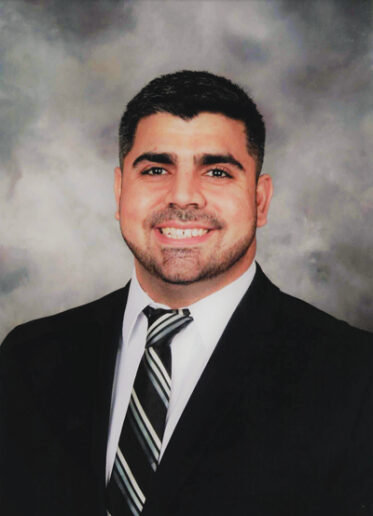In every community across the U.S., vulnerable older adults are being abused, neglected and exploited. Yet, in many instances, their plight is ignored or minimized. Sadly, too many people view the elderly as burdens rather than as valued individuals who are entitled, as we all are, to be treated with dignity and respect.
Many incidents of abuse go unreported because older persons are embarrassed, ashamed or fearful of losing the help they need from family members or caregivers in their homes. As the number of older adults in our population increases, the incidence of elder abuse will almost certainly increase unless our society takes action to address this issue.
In 2008, Sheriff Robert J. Pickell (Retired) founded the Elder Abuse Task Force to address abuse and financial exploitation of seniors. In the spring of 2010, the Task Force merged with the advisory committee for the Genesee County Sheriff’s Office Elder Abuse and Exploitation Prevention Unit. The Sheriff’s Department receives funding from the Genesee County Senior Millage to investigate complaints of criminal violations of laws related to elder abuse.
In order to obtain independent funding and expand its activities, the members of the Sheriff’s Elder Abuse and Exploitation Prevention Unit Advisory Committee and the Task Force determined that a more formal organizational structure was needed. In 2014, the two groups merged with a local nonprofit that was formed to work with the Sheriff’s Elder Abuse Unit. The organization had obtained a 501(c)(3) tax exemption, but was dormant for several years. The organization’s name was changed to the Elder Abuse Alliance (EAA).
The EAA is a collaborative organization. The current membership includes individuals from law enforcement agencies, Adult Protective Services, legal services, Probate Court, elder law attorneys, health care facilities, home health providers, assisted living facilities, senior services providers, social workers and financial institutions.
“The more aware we all are about this growing crisis, the better chance we have of preventing it.”
Amir Abu-Aita, EAA President
President and Elder Law Attorney, Amir Abu-Aita became involved with the EAA around 2013. He was operating his family’s adult foster care facilities and noticed they started receiving residents who were victims of different types of elder abuse. “Ultimately, I became involved in EAA because the organization was made up of phenomenal advocates. I wanted to learn where I could fit in the cause of preventing elder abuse.”
At each membership meeting, a representative from the Sheriff’s Office (usually Lt. Jillian Macey) will report an update about recent cases and investigations. The report is very thorough and details which form of elder abuse has occurred or is occurring. “The group discusses how the abuse was identified and what measures were taken to prevent the victim from remaining in the abusive situation,” Abu-Aita explains.
The Alliance has a strong presence throughout Michigan. “Based on our efforts to educate the public about elder abuse, the statewide Elder Abuse Task Force created by Attorney General Dana Nessel chose EAA to be a mentor to all county organizations similar to EAA around the State of Michigan,” Abu-Aita shares. Their efforts include the E.D.G.E. (Educating, Defending and Guarding the Elderly) Conference they co-hosted with the Sheriff’s Office in October 2021, which will now be an annual event.
This year’s conference is scheduled to take place in September. “It’s going to be epic!” Abu-Aita exclaims. Attendees will learn how they can defend the vulnerable population against perpetrators seeking to harm and exploit them. “Guest speakers will highlight our roles and responsibility as individuals and as a community to guard elderly adults from some of the most heinous and calloused crimes committed against elders,” Abu-Aita states. (Caution is advised; graphic images will be shown during multiple presentations.)
The Adult Protective Services (APS) Act clearly defines what qualifies as elder abuse. It provides for the reporting of a reasonable suspicion of abuse, neglect or exploitation of a vulnerable adult. It is not necessary that the report be based on eyewitness accounts, incriminating statements, or other types of evidence that would be admissible in a court proceeding under the formal rules of evidence. The report can be based on hearsay or circumstantial evidence that gives rise to a reasonable suspicion of abuse, neglect or exploitation.
According to the Act, elder abuse is defined as: The harm or threatened harm to an adult’s health or welfare caused by another. This includes physical abuse, emotional abuse, sexual abuse, neglect and financial exploitation.
Physical & Emotional Abuse
This is defined as conduct intended to cause physical injury including imposing physical restraints. Physical abuse also includes sexual abuse. Emotional abuse includes conduct such as threatening to withdraw needed care or making humiliating or degrading remarks toward an elderly person.
Neglect
Elderly neglect is harm to an adult’s health or welfare resulting from their inability to respond to a harmful situation (self-neglect). It also includes the failure of a person who assumes responsibility for a significant aspect of the adult’s health or welfare to respond to a harmful situation or to provide adequate food, clothing, shelter or medical care (This is often called “caregiver neglect.”) An example of caregiver neglect would be leaving a wheelchair-bound elderly person who has suffered a stroke in front of the TV all day without meals or bathroom assistance.
Financial Exploitation
This type of abuse (also called “exploitation”) is the misuse of an adult’s funds or property. This can include outright theft, misuse of a power of attorney or other breach of a fiduciary duty to manage funds belonging to the adult. An example of this would be using a power of attorney to withdraw money from an elderly person’s bank account and then spending it for personal benefit rather than that of the elderly person.
Indicators of Abuse
Amont many others, these signs of abuse, neglect or exploitation are evaluated along with other information about the individual’s situation.
Physical Appearance
- Old and new bruises (indicates repeated injuries)
- Bed sores and/or other unhealed sores
- Broken eyeglasses or frames
- Clothing ill-fitting or inappropriate for the weather
- Wearing the same clothing all the time
- Decayed teeth
- Sudden weight loss/gain
- Thin hair that appears to be caused by pulling
- Dilated pupils
Behavior-Related Signs
- Unjustified fear or suspicion
- Refusal to open the door to family/friends
- Implausible or inconsistent explanations for injuries
- Recent changes to Last Will, representative payee, trust documents and/or Power of Attorney
- Transfers of title to property, change of beneficiaries on insurance policies
- Newly-opened joint accounts
- Large credit purchases or ATM withdrawals
- Frequently running out of money at the end of the month
- Changing doctors frequently
Environmental Signs
- Hazardous home conditions
- Numerous outdated medications from different doctors
- Soiled bedding, furniture
- Evidence of restraints
- Lack of food, inadequate or spoiled food
- Empty liquor bottles
- House infested with insects or vermin
- Disappearance of personal property and/or household items
Behavior of Abusive, Neglectful, & Exploitative Family/Caregivers
- Isolating the elderly person from family and friends
- Conflicts with neighbors and others in the community
- Denying obvious problems regarding the elderly person’s situation
- Manipulating the elderly person into paying family member/caregiver’s bills
- Leaving the elderly person alone for extended periods
- Withholding food or medication
- Unrealistic expectations of the elderly person
- Implausible or inconsistent explanation for the elderly person’s injuries
- Recent appearance of previously uninvolved relatives or a new “best friend”
- Numerous persons living with the elderly person who have no apparent income
Membership in the Elder Abuse Alliance is open to anyone in the community who is committed to its mission: to improve the quality of life for at-risk older adults by protecting their rights, dignity, and promoting their independence and safety. There are no membership dues.
Amir Abu-Aita looks forward to continuing the EAA’s efforts to educate Genesee County citizens about identifying and reporting elder abuse. “The more aware we all are about this growing crisis, the better chance we have of preventing it,” he states.
As a volunteer organization with no staff and a very small budget, the EAA is unable to respond to requests for individual advice or assistance regarding specific situations. For general inquiries, message eaagenesee@gmail.com. Those interested in sponsoring or attending the E.D.G.E. event this fall can contact EAA or the Genesee County Sheriff’s Office.






































